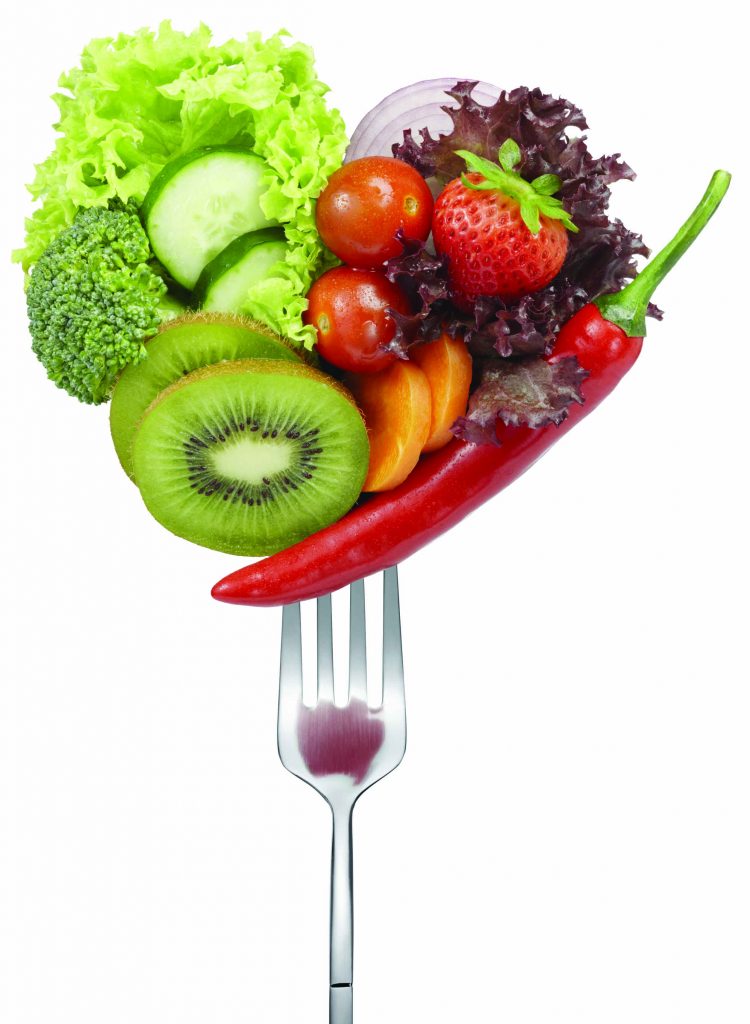
The Skinny On Dieting
By: Jessica Park
Fad diets surround us on social media, on magazine covers in the checkout aisle, on radio ads, on TV talk shows, and in books written by celebrities. They can be hard to ignore if you want to achieve a healthy weight. To figure out which popular weight loss diets are sensible and which are less so, we asked Boone Hospital WELLAWARE registered dietitians Jennifer Anderson (listed as JA), Kelsie Knerr (KK) and Jennifer Tveitnes (JT) for their views.
Paleo
A high-protein diet based on foods supposedly eaten in the Paleolithic era. No grains, dairy or legumes (beans, peas, lentils).
JA: Paleo is a popular diet. The pro is you eat more vegetables, fruits and whole foods.
JT: Avoiding processed foods and junk food is always a good thing.
JA: The downside is it’s challenging for people to eliminate any food group.
JT: Usually we advise that if a diet plan cuts out an entire food group, it’s probably not sustainable.
Gluten-Free
Avoids gluten, a protein found in wheat, barley and rye. Required for people with celiac disease.
JA: Going gluten-free doesn’t mean you’ll lose weight.
JT: Many gluten-free products in the store, like gluten-free muffins or desserts, are actually higher in calories because they’ve added fat to make them taste better.
KK: Americans tend to eat too much bread and pasta, so there can be benefits to decreasing our intake. Going gluten-free could be one way to eat fewer carbs, but it’s not the only way.
Raw Food
Vegetarian diet that eliminates cooked foods
KK: You’re eating a lot of vegetables, which is good…
JT: And you’re not eating junk food. But cooking can bring out certain nutrients in food and make them more available to you. It depends on the cooking method. But at the end of the day, eating a healthy balanced diet is what matters.
JA: And it doesn’t have to be so hard!
DASH (Dietary Approaches to Stop Hypertension)
High-fiber, low-fat, low-sodium diet designed to lower blood pressure.
KK: We love that one and talk about it a lot in our diabetes education classes.
JA: It’s a healthy, balanced diet. It promotes more fruits and vegetables, whole grains, dairy, nuts and seeds.
JT: The DASH diet is based on the knowledge that sodium can increase your blood pressure, but also that some minerals like potassium can help lower your blood pressure. DASH reduces sodium and adds those minerals as part of a balanced diet.
Extreme Calorie Restriction
Diets based on eating below a set amount of calories (e.g., a 500-calorie-a-day diet)
JA: Healthy weight loss is one to two pounds a week, so anything that says “Lose 10 pounds in 10 days” is unrealistic and not sustainable.
JT: You will lose weight on those diets. But there’s a point if you don’t eat enough you go to starvation type mode. Your body isn’t getting all the calories you need, so you start to store everything.
JA: A problem with crash diets is that, when people restrict calories then eat normal again, they’ve reset their internal thermostat. It’ll make it harder when that person tries to lose weight next time.
MyPlate
Nutrition plan that uses visuals to show recommended portion sizes of all food groups.
KK: That’s what we teach!
JA: MyPlate is easy. It’s visual. It doesn’t eliminate anything. And it helps you see what you’re eating and what you need — a little protein, some carbs, lots of vegetables!
Ketogenic
High-fat, low-carb diet designed to induce ketosis. Eliminates grains.
JA: First, this is another diet that eliminates a food group. The other problem is we don’t completely understand what ketosis does or how safe is it for the average person to be in ketosis for an extended period of time? The mild ketosis that this diets leads to is different than diabetic ketoacidosis, but I’d advise that if someone with diabetes follows this diet, they’d want to monitor for ketones more routinely.
Mediterranean
Based on Mediterranean cuisines. Mostly vegetables; fruits, whole grains, legumes, nuts, olive oil; fish and lean meats; limited amounts of dairy.
JA: It’s not totally eliminating any one food group. It promotes variety.
JT: It’s high in heart-healthy fats, like olive oil. If someone were going to buy a diet book, this would be a good one.
KK: It encourages eating fish, too – people sometimes forget how great it is to get more fish in your diet.
Blood Type
Based on the idea that people with different blood types have different nutritional needs
JA: People do have different diets that work better for them. I don’t think one diet fits all. We may learn more how one diet works better for some than others. But I don’t think it’s based off your blood type.
Why Are Fad Diets Popular?
KK: People like structure and rules. Some clients want us to give them meal plans, but that’s hard because we don’t know what foods they like or what their day looks like. Instead we try to teach them to make these decisions on their own with less rigidity and more flexibility.
JT: People want a quick fix with quick results. They want something that’ll get the weight off so they can go back to the wv finding a balance. If you cut something out forever, then you obsess about it, then you might break, binge and start the cycle over again.
The Takeaway
According to our registered dietitians, eating a healthy, balanced diet doesn’t need to be complicated. While eating Paleo might not harm you, you can achieve a healthy weight without giving up cheese. Very restrictive diets, however, can be difficult to follow. They can deprive you of nutrients, and you likely will regain weight when you stop.
Before starting a diet, you should consult a health care professional. To make an appointment with a WELLAWARE registered dietitian, call 573-815-3870.